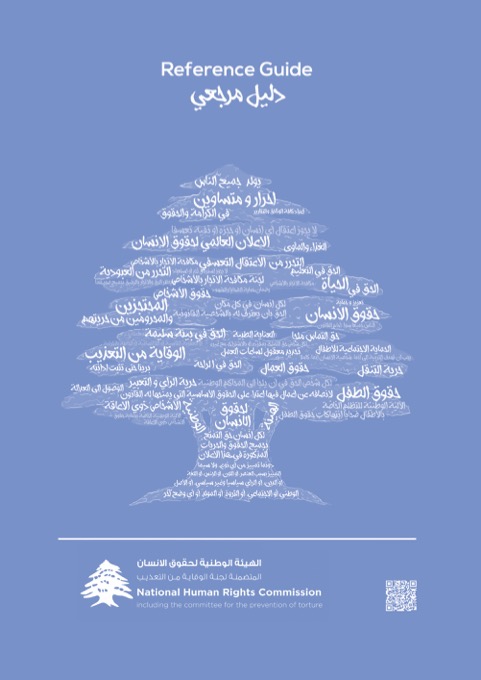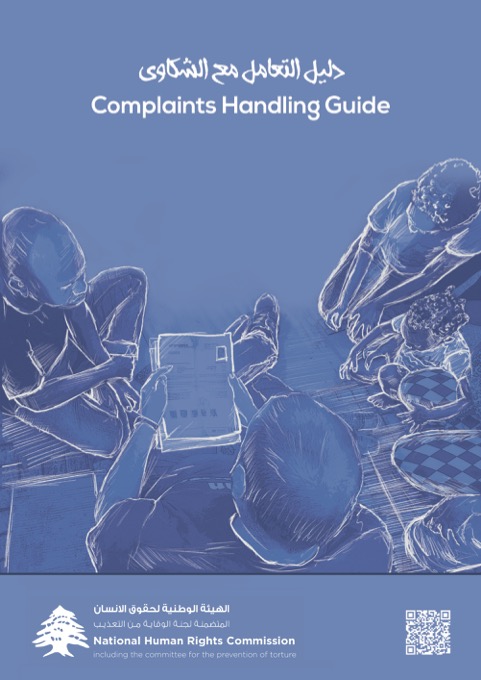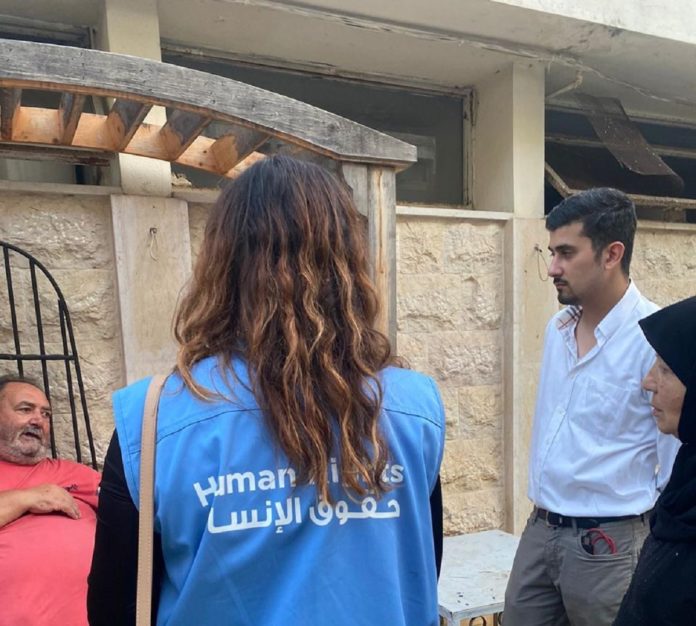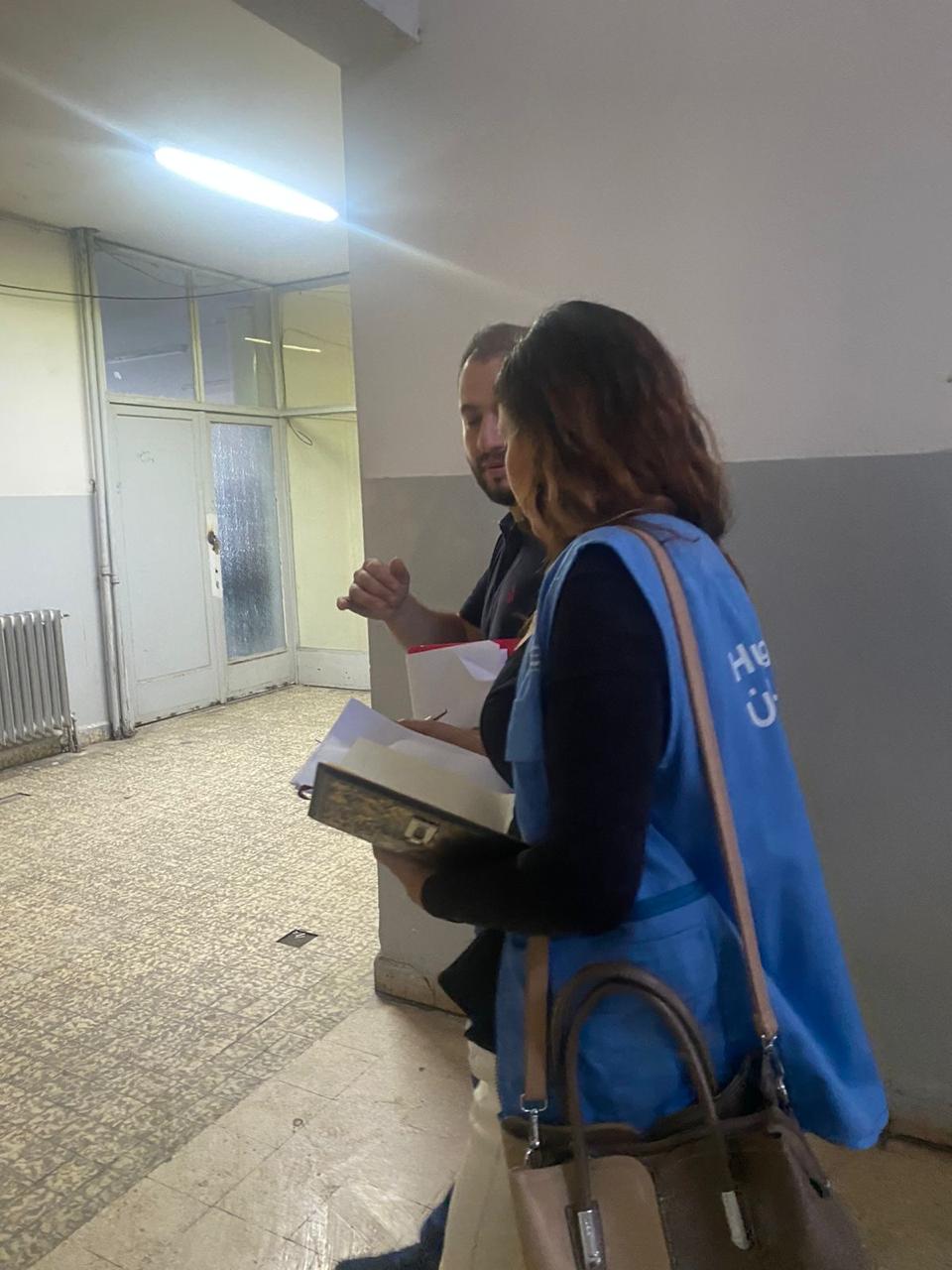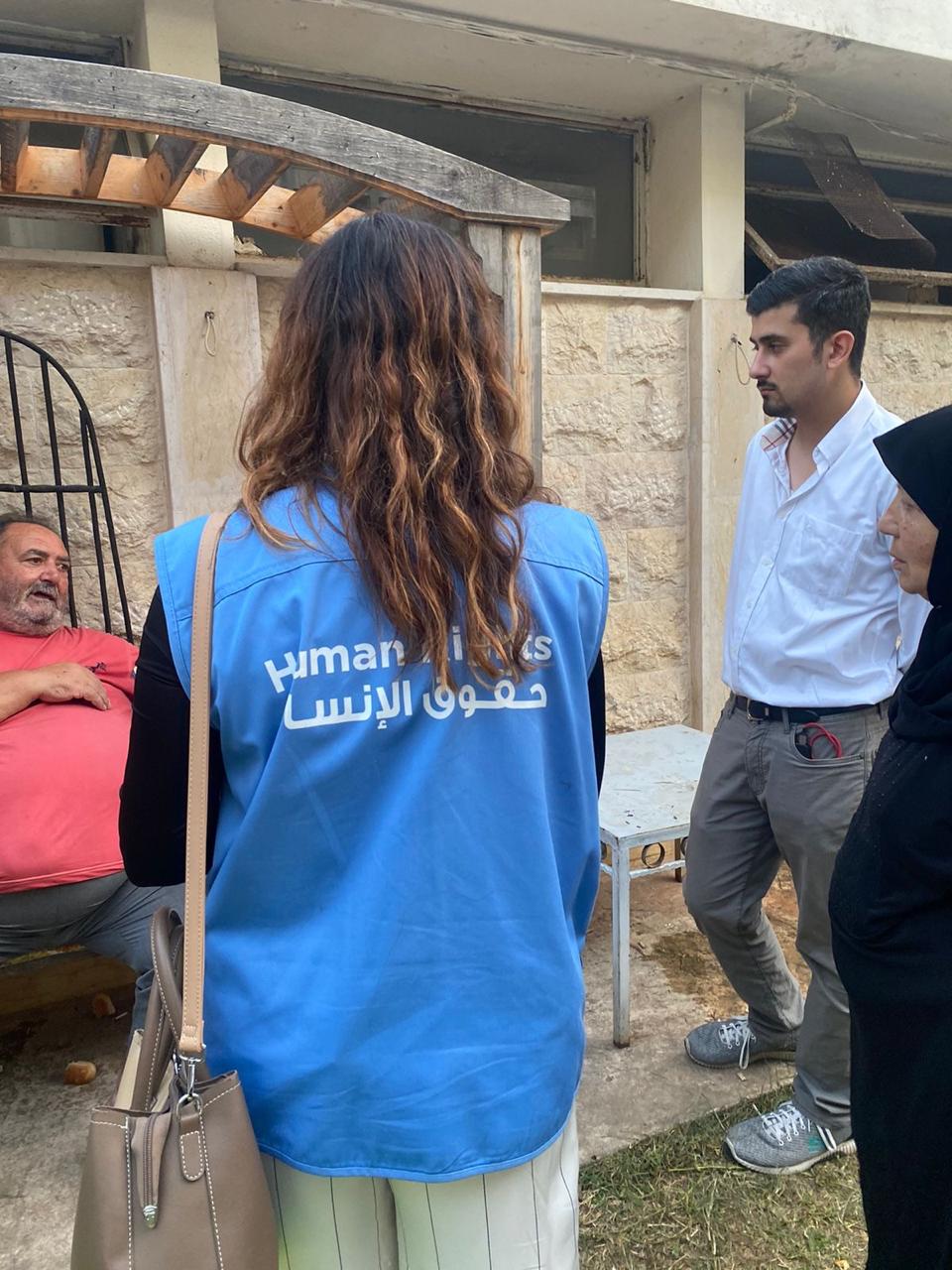As part of its mission to document complaints and violations affecting displaced persons and to refer them to the competent authorities, while coordinating among the various governmental bodies working to address the humanitarian consequences of the ongoing Israeli aggression on Lebanon, the National Human Rights Commission, including the Committee for the Prevention of Torture, accompanied by several volunteers, carried out visits to shelters for displaced persons in various areas of northern Lebanon over the past two weeks.
The delegation was composed of lawyer Dr. Rana Al-Jammal, Secretary of the Commission; volunteer lawyer Manwar Haddad; volunteer lawyer Mohammad Taleb; food and water safety specialist Mira Hajja Kashaf; and volunteer Mr. Mohammad Shaheer Najib. The purpose of these visits was to assess the conditions of the displaced, identify their needs, and determine whether they had been subjected to any violations of their rights.
Visit to the Hotel Institute in Mina, Tripoli
On 25 September 2024, the Commission’s delegation visited the Hotel Institute complex in Mina, Tripoli, consisting of two adjacent buildings: one for the institute itself and another three-story building hosting 320 displaced persons. The delegation met with the director of the institute, who provided information about the displaced persons’ conditions.
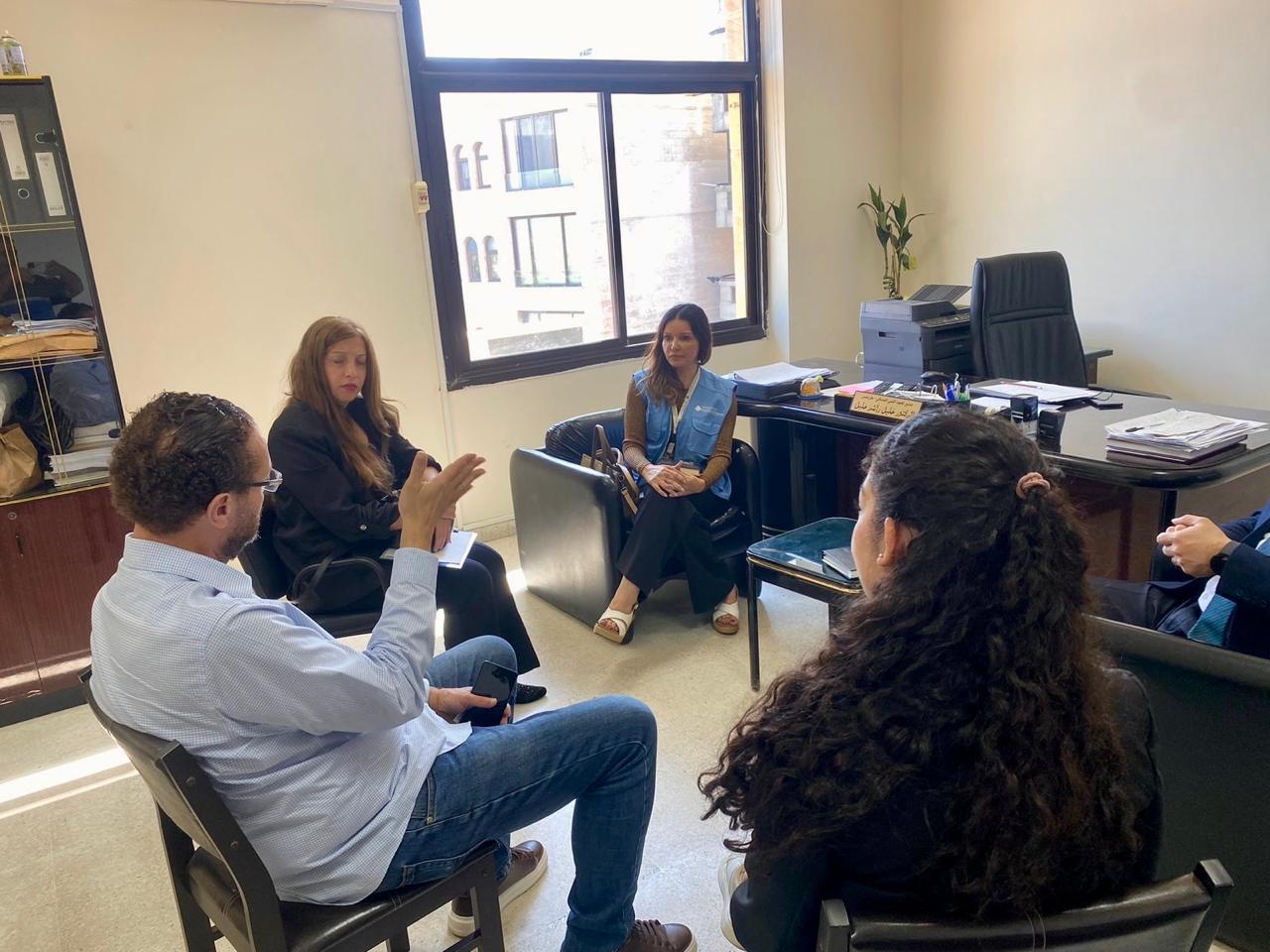
Conditions and Support Structure:
The director explained that displaced families are first registered by the Red Cross, after which they are allocated available rooms in the adjacent building. Several local and international organizations, including Ajyalouna Association, Makarim Al-Akhlaq Clinic, and Médecins Sans Frontières, provide essential services such as medical care, food, and maintenance. Coordination is also underway with UNICEF to install separate bathrooms for men and women, since the existing ones lack showers. Medical teams from local hospitals, such as the Islamic Hospital and Nini Hospital, offer diabetes and blood pressure screenings and provide chronic medications.
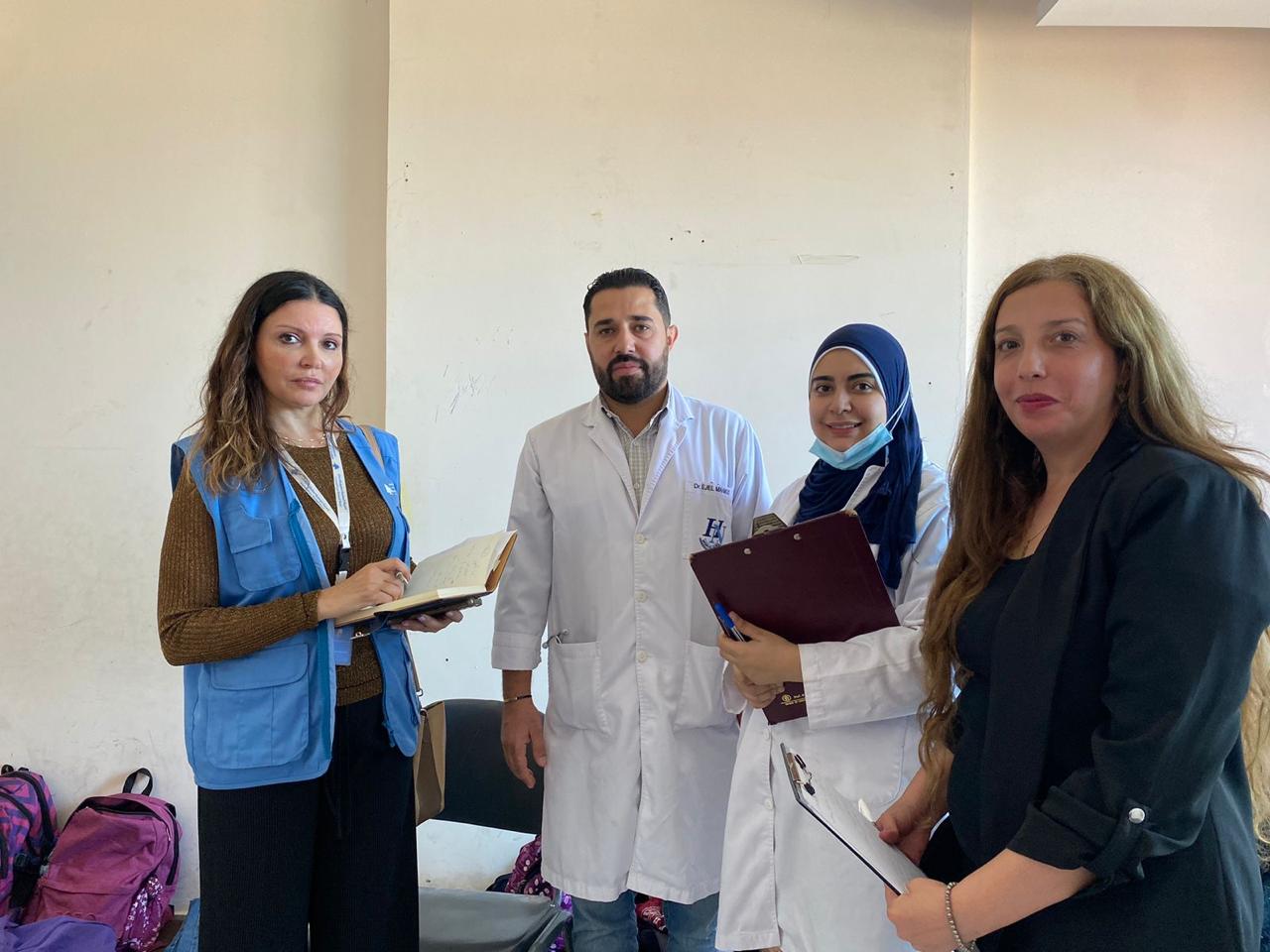
Medical and Psychological Support:
During the visit, the delegation encountered several urgent health cases. One mother shared that her daughter had suffered trauma due to the war and had to be transferred to a hospital. Although medical services are available, some families expressed concern about being asked to pay fees despite their status as displaced persons.
Living Conditions and Challenges:
The displaced are housed in two types of rooms: standard rooms for one family and larger “double” rooms shared by two or more families. Although basics are available, many families stressed the need for cleaning supplies, towels, and clothing, since they fled their homes empty-handed. The director confirmed challenges in providing electricity and hot water due to the limited capacity of the generator. Food is secured through charities and the director’s personal contacts, including support from local restaurants.
Key Findings:
The delegation noted that overall living conditions are generally acceptable despite overcrowding and limited resources. However, areas in need of improvement were identified, particularly sanitation and access to mental health services. Better coordination among assisting organizations was also recommended.
Visit to the Technical Institute in Zgharta
On 26 September 2024, the delegation visited the Technical Institute in Zgharta, consisting of two adjacent buildings, one three stories and the other two. They were received by the institute’s director, who briefed them on the situation.
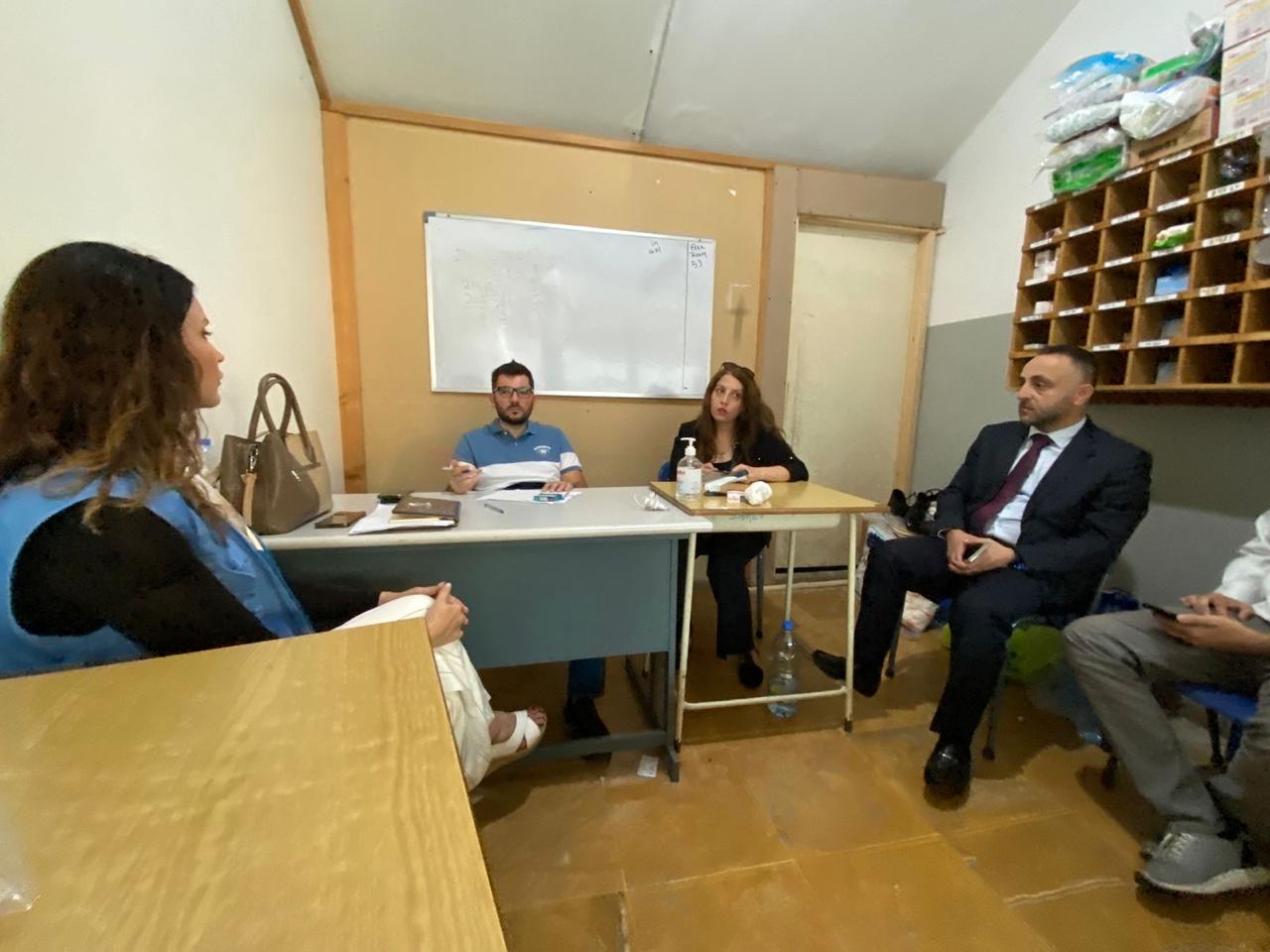
Conditions of the Displaced:
The director reported that the center currently hosts 420 displaced persons—men, women, and children. Due to overcrowding, it cannot accept new arrivals unless a family leaves. Registration is managed by the Red Cross and a committee from the institute, which also allocates rooms and provides mattresses and basic cleaning supplies.
Several organizations contribute to aid, including Al-Midan Association, Duniana Association, and support from Zgharta Municipality. IOCC provides healthcare, with designated days for children’s and women’s check-ups. Food aid is provided by the World Food Programme and the Marada Movement.
Challenges and Needs:
The delegation found several pressing issues. Drinking water is provided in gallon containers at one gallon per family per day. Showers and hot water are insufficient, with only one shower installed in the second building and none in the first. Electricity comes from a private generator, but fuel shortages affect its operation. Solar power is also insufficient due to a lack of batteries. The center also lacks enough mattresses, pillows, and blankets.
Healthcare:
A volunteer doctor examines cases on site, but shortages of essential, especially chronic, medications remain a challenge.
Displaced Persons’ Needs:
Interviews revealed urgent needs for hygiene items (diapers, baby formula), clothing, and shoes. Families also highlighted the need for hot water with winter approaching.
Recommendations:
The committee recommended:
-
Securing diesel for the generator.
-
Increasing solar battery capacity.
-
Installing additional showers and hot water systems.
-
Providing blankets, pillows, and clothes.
-
Improving healthcare and supplying medicines.
-
Engaging scouting associations for children’s activities.
-
Involving psychologists for support, especially for children.
Visit to May 1 and May 2 Public Schools in Tripoli
On 27 September 2024, the Commission visited May 1 and May 2 public schools in Tripoli, allocated to displaced Syrians who fled southern Lebanon.
The principal reported 283 displaced persons in May 1 and 280 in May 2, with estimates that the total may reach 1,000. Entry was initially chaotic but later organized. The Al-Sulh wa Irshad Association provides food and cleaning supplies, though not enough for all. Al-Karama Clinic provides medicines, ICA offers basic healthcare, and Caritas supplied mattresses, blankets, and pillows, though insufficient.
Major Challenges:
Food and clean water shortages, inadequate healthcare and sanitation, and insufficient solar power (no generator or grid subscription). The delegation observed poor hygiene, foul odors, insufficient bedding, and lack of hot water in shared bathrooms.
Urgent Recommendations:
-
Deploy security personnel at entrances.
-
Increase meal provision.
-
Improve water and electricity supplies.
-
Provide health and psychosocial support for children.
-
Ensure adequate clothing and hygiene items.
Visit to Al-Jadida and Farah Antoun Public Schools in Zahriyeh, Tripoli
On 27 September 2024, the Commission visited Al-Jadida and Farah Antoun schools, designated for Lebanese and Syrian displaced persons.
Al-Jadida School:
Hosts 210 displaced persons (65% Syrians, 35% Lebanese), mostly women and children. The school is full. Registration is handled by the Red Cross. Support comes from the People’s Relief Authority (children’s activities), Ibn Sina Hospital (doctor and medicines), and Caritas (limited bedding). Meals are secured from local restaurants. Power is insufficient due to solar battery shortages; the generator needs fuel. Hygiene was acceptable but some fans were broken.
Farah Antoun School:
Hosts 173 displaced persons, mostly women and children. Conditions mirror Al-Jadida, with shortages of bedding and utilities.
Recommendations:
-
Increase meal distribution.
-
Add solar batteries.
-
Provide fuel for the generator.
-
Install showers and hot water systems.
-
Ensure sufficient drinking water.
-
Provide mattresses, blankets, pillows.
-
Supply clothing, shoes, and undergarments.
-
Provide cleaning materials.
-
Secure baby formula, women’s sanitary pads, and diapers.
-
Provide medicines for scabies and other illnesses.
Visit to Qalamoun School
On 27 September 2024, the Commission visited Qalamoun Public Boys’ School, designated for displaced persons.
Conditions:
The principal reported 120 displaced persons, with only two rooms still available. Registration is supervised by Qalamoun Municipality. Food and drinking water are provided by Ibad al-Rahman Association, with limited rations distributed every three days. Bathing water comes from a spring, but bathrooms lack showers and hot water. Electricity is available through a 24-hour subscription, but other needs remain unmet.
Healthcare:
Al-Rahma Clinic provides medicines, and its doctor visits daily. Most required medications are for chronic illnesses such as hypertension. Clothing and shoes are donated by associations but remain insufficient. Caritas volunteers organize activities for children.
Observations:
Rooms for seven people had mattresses and covers but not enough for all. School furniture had been removed and stored. Some facilities (fans, bathrooms) need repairs.
Recommendations:
-
Secure continuous generator subscription.
-
Install showers and hot water.
-
Provide gas cylinders and kitchen tools.
-
Increase clean water supplies.
-
Provide more mattresses, blankets, pillows.
-
Supply clothing, shoes, hygiene items.
-
Provide cleaning supplies and toiletries.
-
Ensure essential and chronic medications.
-
Collaborate with associations for children’s activities and psychosocial support.
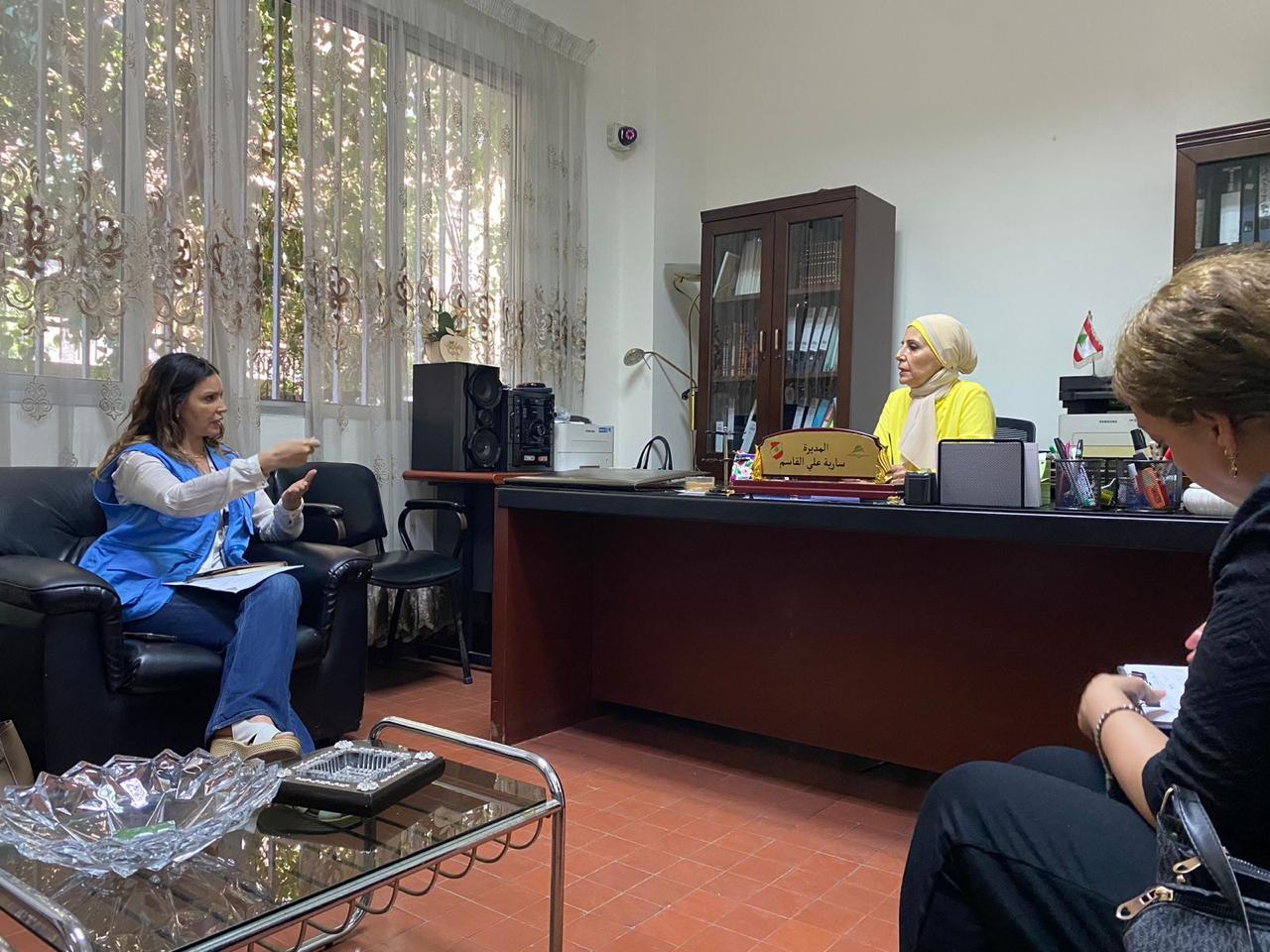
هذه المقالة متاحة أيضًا بـ: العربية (Arabic)
